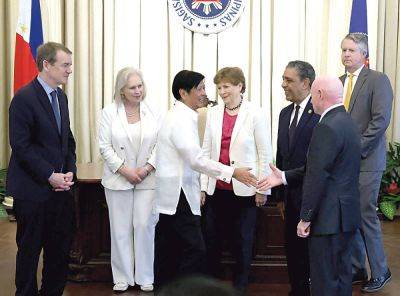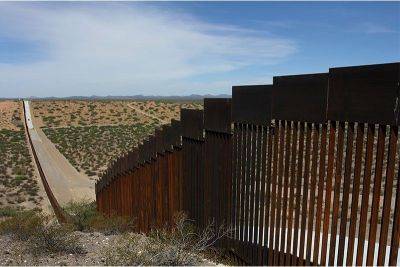Philippines says US will address concerns over garment exports held up on suspicion of forced labor
MANILA, Philippines (AP) — The U.S. commerce secretary has committed to address concerns by the Philippines after American authorities held up shipments of garments on suspicion that cotton was produced by forced labor in China’s Xinjiang region, Philippine officials said Tuesday.
Philippine Trade Secretary Alfredo Pascual raised the issue in a meeting Monday with U.S. Commerce Secretary Gina Raimondo, who was leading a U.S. business delegation in Manila to further expand trade and investment in America’s oldest treaty ally in Asia.
“Secretary Raimondo has committed to assist us on this issue,” Philippine Trade Undersecretary Ceferino Rodolfo told The Associated Press, without elaborating. “We are working collaboratively with the U.S. side.”
U.S. officials did not comment immediately.
The Philippine Trade Department said the issue involved “detained apparel exports” in the U.S. but did not elaborate.
A Philippine trade official told the AP that several shipments of apparel to the U.S. by just one Philippines-based company since November had not been released by the U.S. Customs and Border Protection due to suspicion cotton produced by Xinjiang’s predominantly Muslim Uyghurs were used in the exported apparels.
The official spoke on condition of anonymity because of a lack of authority to discuss the matter publicly. The Philippines is concerned such issues could tarnish the image of its apparel exports to the U.S., one of Manila’s largest export markets.
In 2021, President Joe Biden signed a bill into law to block imports from Xinjiang and other areas in China unless businesses can prove the items were made without forced labor. The law requires U.S. government agencies to expand their monitoring of the use of forced labor by China’s ethnic minorities.
The U.S. cites raw cotton, gloves, tomato products, silicon and viscose, fishing gear and components in solar energy as among goods alleged to have been produced using forced labor in Xinjiang, a resource-rich mining region that is important for agricultural production and has a booming industrial sector.
The 2021 law was among attempts by the U.S to get tough with China over its alleged systemic and widespread







